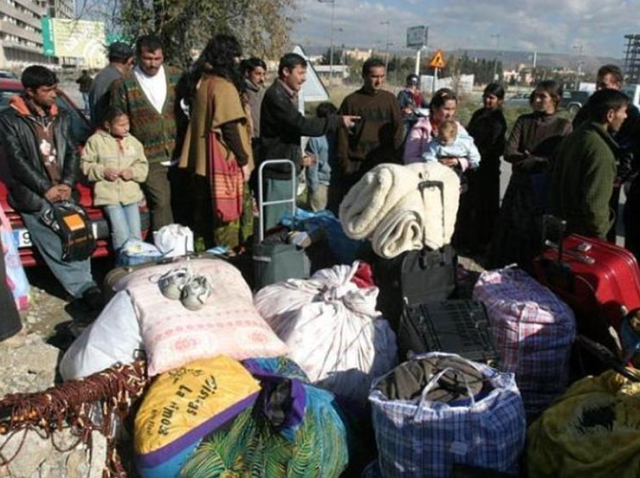The Roma, Romania and Europe
The problems facing the Roma community in Europe have been discussed at a European summit recently held in Brussels.

Bogdan Matei, 18.04.2014, 11:59
In a quite unusual gesture for the diplomatic world, the Swedish Minister for European Affairs, Brigitta Ohlson has lashed out at the Romanian authorities, expressing her anger at what she described as Romania’s lack of interest for the social inclusion of the Roma. Obviously ungrounded, her statement is indicative of the perception of some Western cabinets of the situation. Before the Swedish official, some voices had been heard in other major European cities, like Rome, Paris, Brussels or London, that blamed Bucharest for its passive attitude or indifference towards this issue, which part of the European mass-media and political class has deemed as exclusively Romanian.
Numbers speak for themselves, though. Out of the 12 million Roma in Europe, only 620,000 live in Romania, which accounts for 3.3% of the total population of the country. This minority, the largest on the continent but without a mother land of their own to claim and fight for its protection, has for quite some time been an all-out European issue. Victims of prejudice wherever they go, the Roma have most of the time found themselves pestered by the overzealous French gendarmes or targeted by the Xenophobic rhetoric of the Hungarian far right. Perceived as bohemians at best, when not directly associated with indolence, crime, squalor and poverty, they remain a foreign body in many European societies.
In an X-ray equally serious and accurate, the head of the European Commission delegation, Jose Manuel Barroso said many Roma people are still living in utmost poverty and suffer social exclusion in some parts of Europe, adding that It is unacceptable that in some cities Roma children are enlisted in schools for children with mental disabilities and thus miss the chance of getting an education up to their potential and well-paid jobs. According to Jose Manuel Barroso, it is unacceptable for the Roma to be discriminated in hospitals, schools, when trying to find a job or acquire a house, just as it is unacceptable for the racist anti-Roma rhetoric to gain popularity among European citizens.
Although in tune with the Romanian realities, the human rights organisation Amnesty International admits that almost everywhere in the EU, there are abuses against the Roma also involving local authorities. Amnesty International director Nicolas Beger says that the local authorities are expected to make clear-cut commitments regarding the Roma, as they are involved in many cases of forced evictions or segregation of the Roma people. Racially justified violence, including violent action by the police, must end, according to Nicolas Beger, and Amnesty International is still waiting for the European Commission to impose infringement procedures on the states that violate the rights of this ethnic group.
Far from being a singular case in Europe, Romania has along the years registered failures in carrying out the social inclusion of this community. Since the Middle Ages up until the 19th century, the Roma were slaves, a cheap labour force on the land of Romanian boyars or rulers. They were released by the authorities of the fledgling Romanian state, but got ignored and marginalised shortly afterwards. During WW ll part of the Roma was deported by the regime of Marshal Ion Antonescu, an ally Nazi Germany. The post-war communist dictatorship in Romania resorted to police methods to force them to settle down.
However, anti-Roma prejudice is still widespread among Romanians, who seem to have failed to accept this ethnic group as compared to others living among them. President Traian Basescu admits that over 50% of the working Roma has a low degree of education while educated gypsies may face difficulties in their attempt to find a good job. According to the president, although Brussels’ estimates are right, both the Romanian authorities and the Roma communities still have a huge task in front of them:
“The Commission’s conclusions are not negative and mention some progress, such as the fact that we have set aside places for Roma students in universities. The report also mentions the progress made as regards primary school attendance by Roma pupils, but there is still more to be done. Of course the Commission’s reports are always very encouraging, but the reality, and I am not referring only to Romania, is still unacceptable for the Roma. On the other hand, no matter what local authorities do, if we don’t have a partnership, if the Roma minority is not willing to make positive progress on their part, our efforts are in vain.”
President Basescu also deplores the fact that in Romania, a big part of the socially included Roma no longer admit they belong to this ethnic group. In spite of being success stories in arts or sport, some of these people have constantly denied their background. Sociologists have also pointed out that there are Roma of Christian-Orthodox faith who have declared themselves Romanians. In Transylvania, central Romania, some of the Catholic gypsies declared themselves Hungarians while in Dobrogea, in the south, Muslim gypsies have been registered as Turks.
But as long as the Romanian majority and the Roma minority do not overcome their prejudice, the social inclusion of Roma will be dragging on for years without yielding the desired results.






























